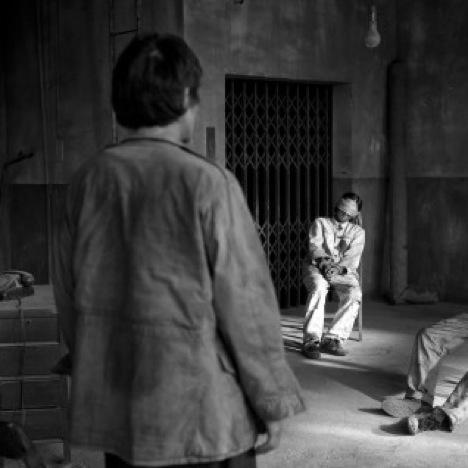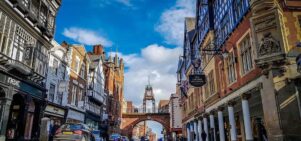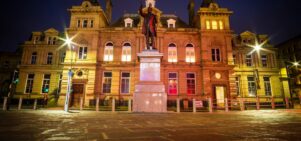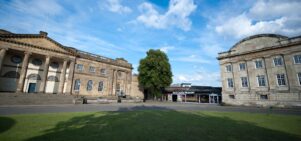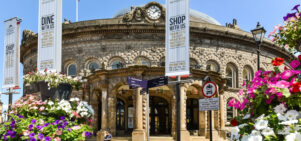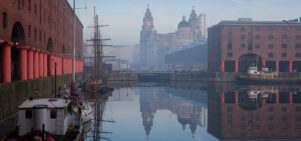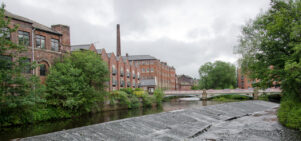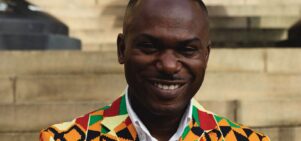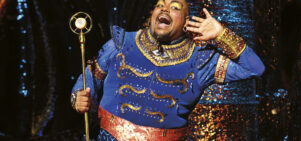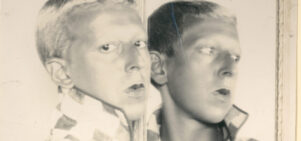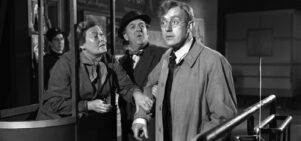Memory and myth.
Dan FeeneyDan Feeney is unsettled by the ‘cold abandoned buildings, populated by cold abandoned people’ at the Chinese Arts Centre

‘Memory is the diary we all carry about with us,’ observed Oscar Wilde and artist Chen Chieh-jen’s latest work follows that particular line of argument. It uncovers family memories via documents left behind by the artist’s late father, a Taiwanese anti-Communist activist. Building connections between snatched memories, including an invented autobiography, Chen creates an intriguing portrait of his father alongside an exploration of a Western-led attack upon an enemy state. Empire’s Border II, the resulting three-video installation, is often poignant, sometimes perplexing, but mostly successful.
The main gallery of the Chinese Arts Centre houses a large projection of the central artwork, which charts the internationally acclaimed artist Chen’s journey into his father’s memories. Having discovered the meagre possessions he left behind – just an army jacket, an empty photo album (the pictures burned to protect the identity of those captured) and the fake autobiography that diverted authorities away from his father’s involvement in the anti-Communist National Salvation Army – Chen visits the ‘offices’ of Western Enterprises Inc., a short-lived Taiwanese company that acted as a front for the CIA. In what turns out to be an abandoned factory, the artist confronts memory and myth, placing his family’s historical struggle into the frame of political progress.
The aesthetics of the piece are as important as its content. Chen’s mise-en-scène evokes no colour but grey. The blacks are muted, the whites soiled with dust and decay. Shafts of light pierce abandoned rooms, illuminating the atmosphere more than the space. Lingering shots remain static for moments longer than is strictly comfortable. Using surround-sound to full effect, the throbbing drone soundtrack heightens this dull air – if, that is, you can heighten grey.
Empire’s Border allows Chen Chieh-jen another opportunity to explore post-industrial abandonment, a theme he examined in his film, Bade Area, screened recently in Manchester as part of the AND festival. The film centres on the decaying city of Bade, a town in North West Taiwan. In it, Chen meet figures from his father’s, and his nation’s, memory. The characters, some of whom appear to rise from the dead to accompany the artist, represent Taiwan of the late 1950s, a nation torn asunder by the oppressive Left and the US-sponsored martial law of the Kuomintang Party. In exploring these untold stories, Chen casts himself as both his father and Taiwan, liberating the lives and memories of those he encounters. Yet the overriding feeling is one of cold abandoned buildings, populated by cold abandoned people. The future on offer is left as an unanswered question; a recognition of Taiwan’s ongoing uncertainty.
Empire’s Border II – Western Enterprises Inc., Chinese Arts Centre. Until Sunday 20th November. Free. Images (top to bottom): both Empire’s Border II, courtesy the artist.
